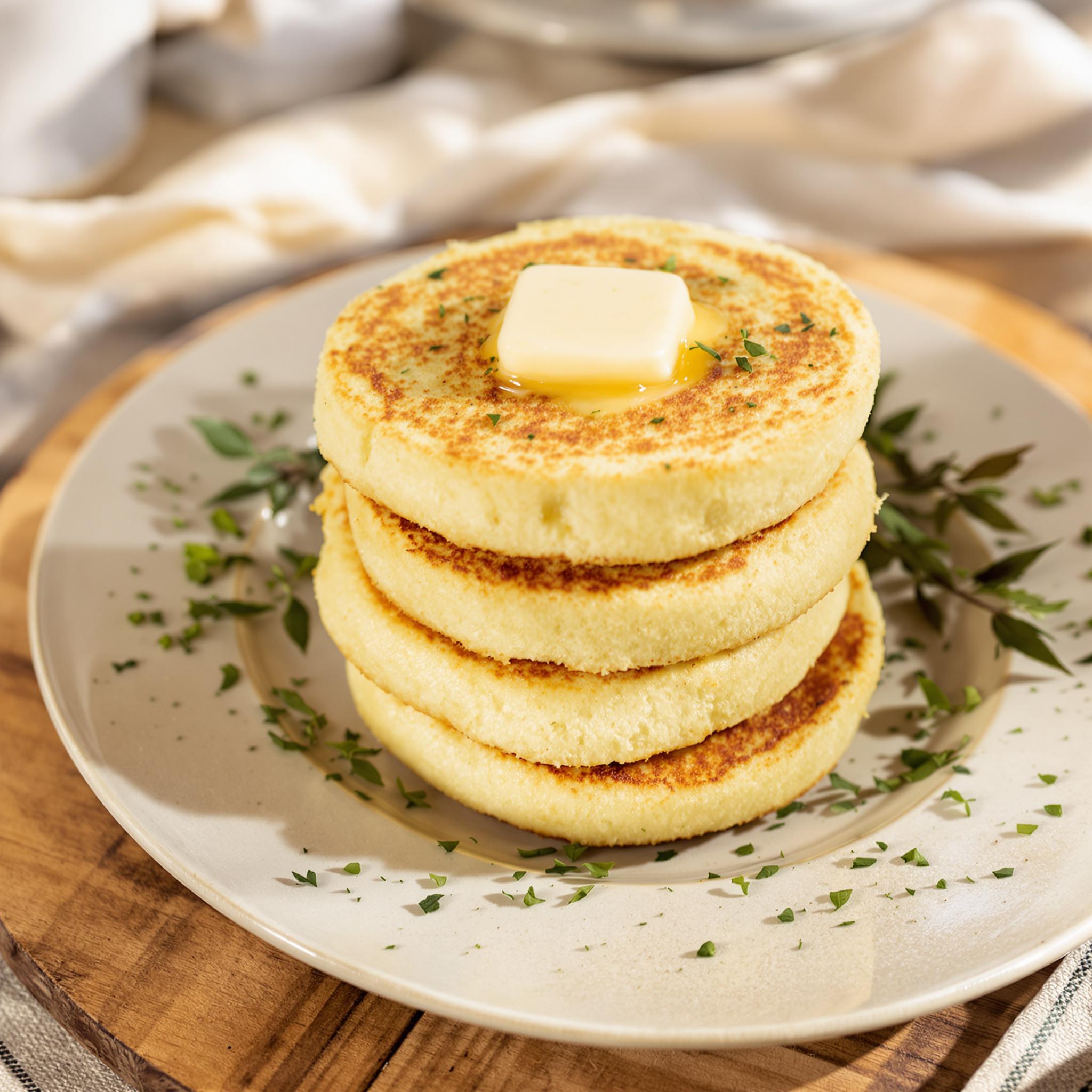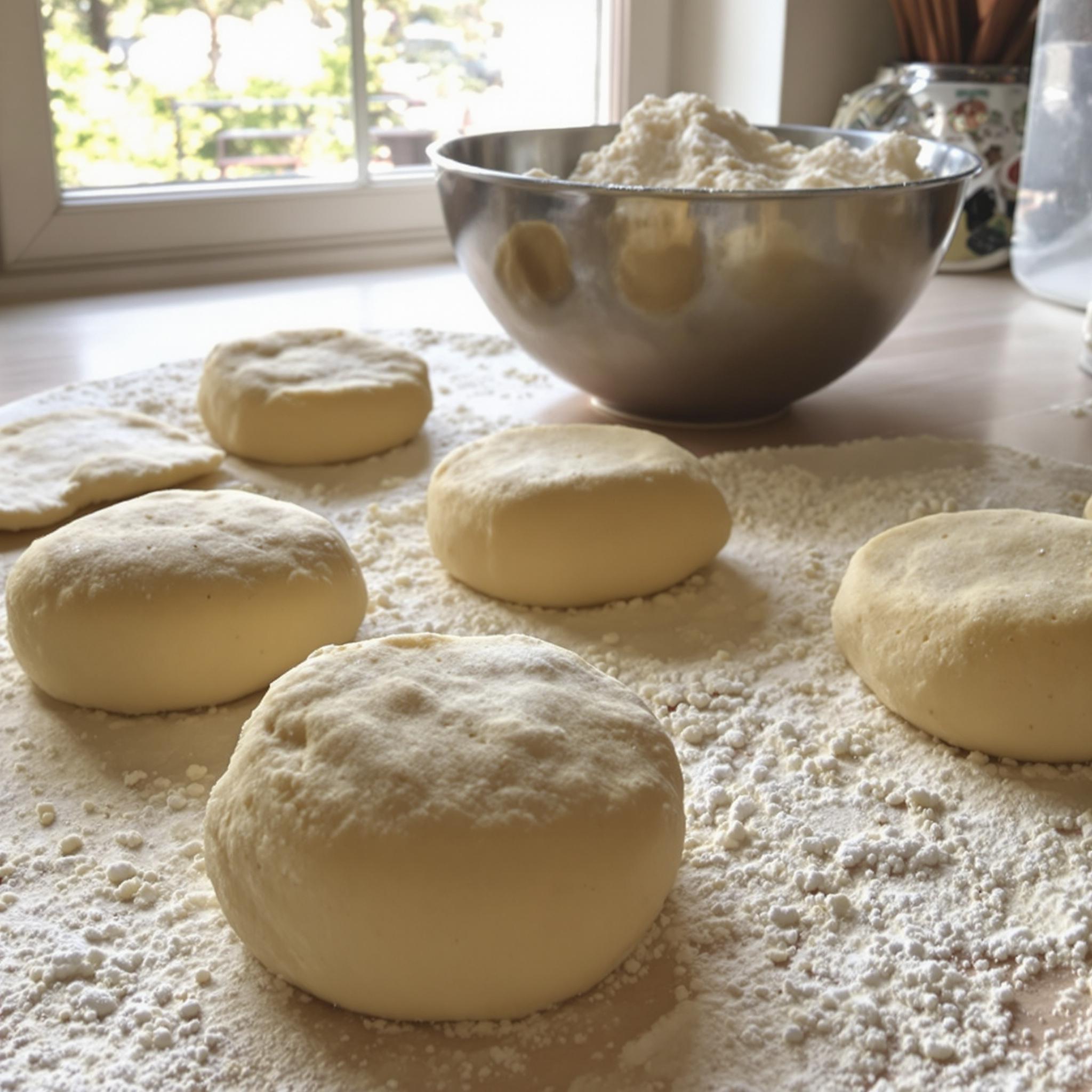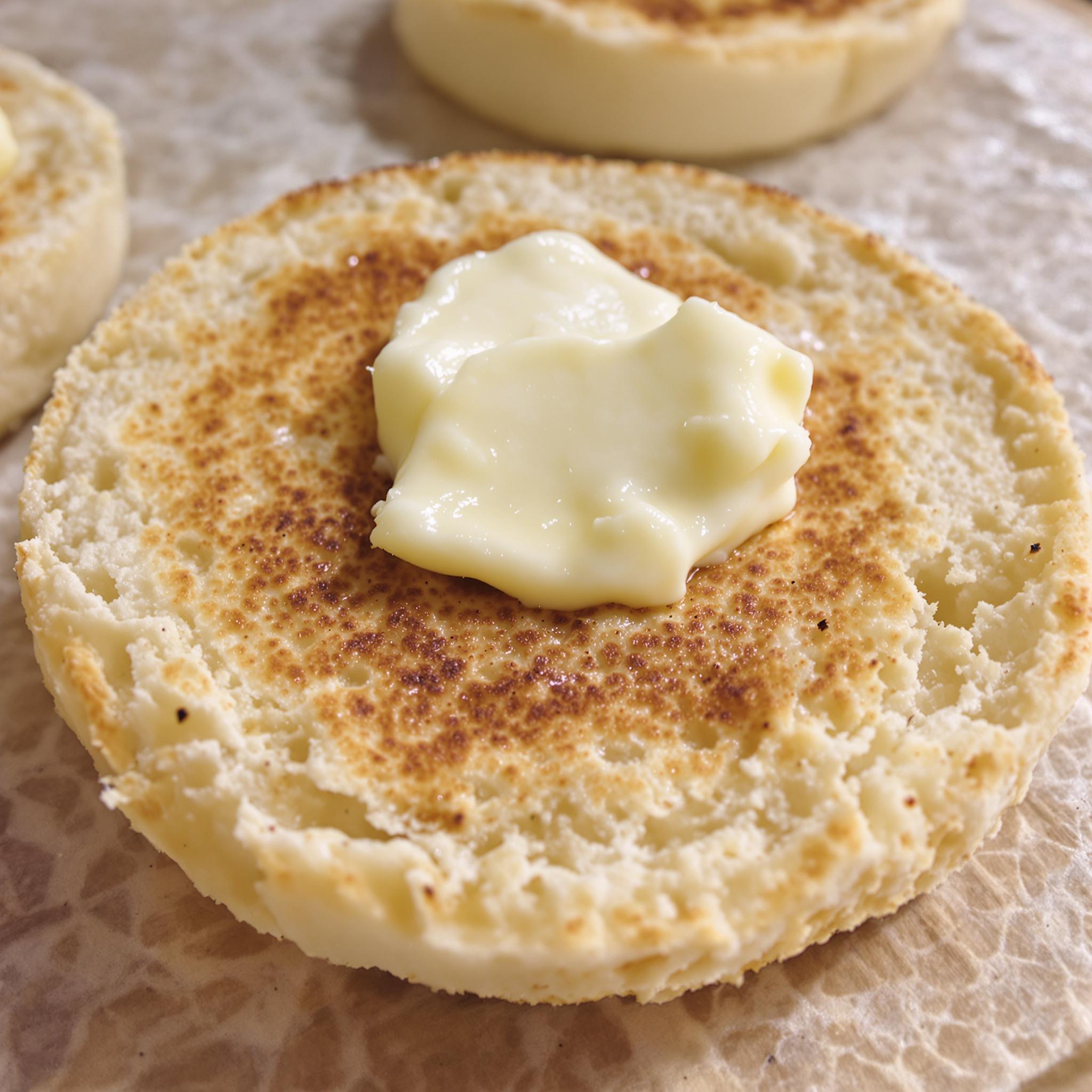Fluffy English Muffins: A Breakfast Classic
English muffins are soft, chewy, and perfect for breakfast. I made them one lazy Sunday morning. The buttery smell filled the house, and everyone loved them. Homemade beats store-bought every time.
A Little History of English Muffins
Despite the name, English muffins didn’t start in England. They were invented in the U.S. by Samuel Bath Thomas back in 1880. Unlike regular muffins, these are cooked on a griddle, not baked. Over time, they’ve become a brunch favorite worldwide.
Why You’ll Love This Recipe
This recipe is simple and uses basic ingredients but tastes amazing. The texture is light with a golden crust. Plus, making them at home lets you control the quality and flavors.
Perfect Occasions to Make English Muffins
These muffins are great for breakfast or brunch. Serve them on holidays like Christmas morning or casual weekends. They’re also handy for quick weekday toasts.
Ingredients
- 2 cups all-purpose flour
- 1 cup whole wheat flour
- 1 cup warm milk
- 1/2 cup warm water
- 2 tablespoons sugar
- 1 teaspoon salt
- 2 1/4 teaspoons active dry yeast
- 2 tablespoons unsalted butter, melted
Substitution Options
Swap whole wheat flour with more all-purpose if needed. Use plant-based milk for a vegan option. If you don’t have unsalted butter, olive oil works fine.
Step 1: Activate the Yeast
Mix warm water, sugar, and yeast in a bowl. Let it sit for 5-10 minutes until frothy. Tiny bubbles mean it’s working. Don’t skip this step—it’s key to rising dough.
Step 2: Combine Dry Ingredients
In another bowl, mix both flours and salt. Add the yeast mixture and milk while stirring. The dough will come together. It’s okay if it feels sticky at first.
Step 3: Knead the Dough
Knead the dough on a floured surface for about 10 minutes. Aim for smooth, elastic dough. Feel how it softens under your hands. Tip: Keep your workspace clean for easier handling.
Step 4: Let It Rise
Place the dough in a greased bowl, cover it, and let it rise for an hour. Find a warm spot to speed things up. Watch as it doubles in size—waiting pays off.
Step 5: Shape and Cook
Punch down the dough and shape into rounds. Cook them in a skillet over low heat for 5-7 minutes per side. Look for that golden brown color. Your kitchen will smell amazing!
Chef’s Tip
For extra flavor, sprinkle cornmeal on the skillet before cooking. It adds a nice crunch to each bite.
Time Breakdown
- Prep Time: 20 minutes
- Rising Time: 1 hour
- Cooking Time: 20 minutes
- Total Time: 1 hour 40 minutes
Nutritional Information
Per serving (1 muffin): Calories: 150, Protein: 4g, Fat: 3g, Carbs: 26g.
Extra Information
Fun fact: English muffins are traditionally split with a fork, not a knife. This keeps their nooks and crannies intact.
Necessary Tools
- Mixing bowls
- Skillet or griddle
- Rolling pin
- Measuring cups and spoons
Storage Instructions
To keep muffins fresh, store them in an airtight container at room temperature for up to 3 days. For longer storage, freeze them wrapped individually in plastic wrap.
If freezing, thaw overnight in the fridge before reheating. Toast frozen muffins directly for convenience.
Never leave them uncovered—they dry out fast. Proper storage keeps them soft and tasty.
Tips and Tricks
Use a kitchen scale for precise measurements. Don’t rush the rising time—it’s key to fluffy results. Always cook on low heat to avoid burning.
Serving Suggestions
- Top with butter and jam for a classic treat.
- Make mini sandwiches with eggs and bacon.
Healthier Alternatives for English Muffins
Here are six ways to make this recipe healthier:
- Whole Grain Boost: Use only whole wheat flour for added fiber.
- Less Sugar: Cut the sugar to 1 tablespoon for a less sweet version.
- Olive Oil Swap: Replace butter with olive oil for heart health.
- Gluten-Free Option: Try gluten-free flour blends for dietary needs.
- Protein-Packed: Add a scoop of protein powder to the dough.
- Vegan Delight: Use plant-based milk and skip dairy butter entirely.
Mistake 1: Skipping the Yeast Activation
Many forget to activate the yeast properly. Without this step, the dough won’t rise. Always check for foam before moving forward. Pro tip: Ensure water isn’t too hot—it can kill the yeast.
Mistake 2: Over-Kneading the Dough
Over-kneading makes the muffins tough. Stop once the dough feels smooth and elastic. Gentle kneading gives the best results.
Mistake 3: Cooking on High Heat
High heat burns the outside while leaving the inside raw. Cook slowly to get even browning. Patience is key here.
Frequently Asked Questions
Can I use instant yeast instead of active dry yeast?
Yes, you can. Instant yeast doesn’t need activation, so mix it directly with dry ingredients. Adjust liquid amounts slightly if needed.
Do I have to use whole wheat flour?
No, you can replace it with all-purpose flour. Whole wheat adds nutrition but isn’t mandatory.
How do I know if the dough has risen enough?
The dough should double in size. Gently press it—if it springs back slowly, it’s ready.
Can I bake these instead of frying?
Yes, preheat your oven to 350°F and bake for 10-12 minutes. Frying gives a crispier texture, though.
Why is my dough too sticky?
Sticky dough often means too much liquid. Add small amounts of flour until manageable, but don’t overdo it.
What if I don’t have a skillet?
Use a nonstick pan or griddle. Just ensure it’s large enough for multiple muffins.
Can I freeze unbaked dough?
Yes, portion and freeze raw dough. Thaw in the fridge before shaping and cooking.
Why do my muffins taste bland?
Check your salt and sugar levels. Both enhance flavor. Also, try adding herbs or spices for variety.
Are English muffins healthier than bread?
They’re similar calorie-wise but offer different textures. Opt for whole grain versions for added benefits.
How long do leftovers last?
Stored correctly, they last 3 days at room temperature or 3 months frozen. Reheat before serving.
Conclusion
English muffins are versatile and easy to make. Whether plain or customized, they bring joy to any meal. Give this recipe a shot—you won’t regret it!

Equipment
- Mixing bowls
- Skillet or griddle
- Rolling pin
- Measuring cups and spoons
Ingredients
- 2 cups all-purpose flour
- 1 cup whole wheat flour
- 1 cup warm milk
- 1/2 cup warm water
- 2 tablespoons sugar
- 1 teaspoon salt
- 2 1/4 teaspoons active dry yeast
- 2 tablespoons unsalted butter, melted
Instructions
- Mix warm water, sugar, and yeast in a bowl. Let it sit for 5-10 minutes until frothy.
- In another bowl, mix both flours and salt. Gradually add the yeast mixture and milk while stirring.
- Knead the dough on a floured surface for about 10 minutes until smooth and elastic.
- Place the dough in a greased bowl, cover it, and let it rise for an hour.
- Punch down the dough and shape into rounds. Cook them in a skillet over low heat for 5-7 minutes per side.


